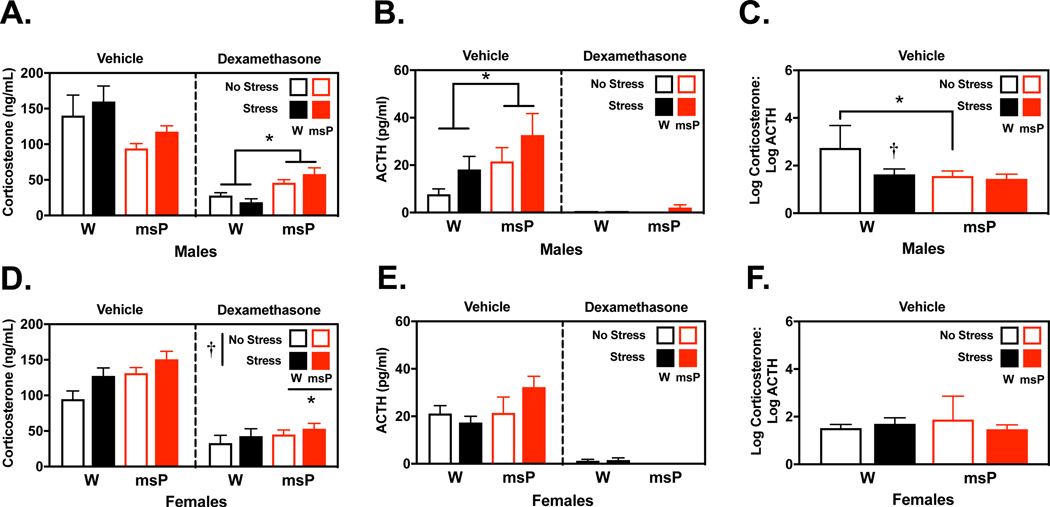Fig. 2. Negative feedback regulation of corticosterone is impaired in a genotype- and sex-dependent manner.
Male and female Wistar (W) and Marchigian Sardinian alcohol-preferring (msP) rats were examined for circulating corticosterone (A, D) and adrenocorticotropic hormone (ACTH) levels (B, E) 30 min following a restraint procedure or under no stress conditions. Rats also received pretreatment with either vehicle or the synthetic glucocorticoid dexamethasone (0.3 mg/kg) that suppresses hypothalamic-pituitary-adrenal axis signaling (n= 4–7 per group). A separate analysis examined the ratio of corticosterone and ACTH (C, F) in vehicle-treated groups only (n= 4–6 per group). Dexamethasone treatment significantly reduced corticosterone and ACTH levels in all groups, although genotypic differences emerged in a sex-dependent manner. In males, there was a non-significant trend for msPs to display reduced basal corticosterone levels, while dexamethasone resulted in diminished suppression of corticosterone release relative to Wistars. Alternatively, in females, restraint stress mobilized corticosterone release in both groups and remained persistently elevated in msPs than Wistars. Basal ACTH levels were generally elevated in msPs, although this effect was only significant in males. The analysis of corticosterone:ACTH ratios revealed significant differences in males but not females. Ratios were largest in non-stressed Wistar males but were reduced to comparable levels as their msP counterparts following restraint stress. Data reflect the mean concentration or log-transformed ratio of the circulating stress hormones (± SEM). Asterisks (*) indicate significant differences in genotype and daggers (†) indicate significant differences in stress conditions (p<0.05).

